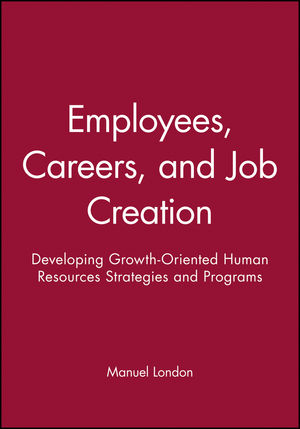Employees, Careers, and Job Creation: Developing Growth-Oriented Human Resources Strategies and ProgramsISBN: 978-0-470-54766-3
Paperback
346 pages
July 1995, Pfeiffer
 This is a Print-on-Demand title. It will be printed specifically to fill your order. Please allow an additional 10-15 days delivery time. The book is not returnable.
|
||||||
This is a new age for both workers and companies. Organizations have attempted to downsize, reengineer, or restructure their way to greatness only to find that such dramatic change efforts fail to produce real long-term economic growth. In the process, these changes have wreaked havoc on the jobs, careers, and lives of employees everywhere. Yet, there are some workers and companies breaking new ground in finding successful alternatives to employee displacement and downsizing--in organizations that have discovered new and creative ways to link employee development and job creation with organizational economic growth.
In this new volume of the Professional Practice Series--the first to be published by Jossey-Bass--Manuel London brings together a group of research and practice experts to show how such leading companies as AT&T have responded to demands for change with programs that enhance career opportunities for individuals and stimulate organizational growth. In thirteen original chapters, London and his contributors detail how industrial and organizational psychologists, human resource professionals, and consultants have created innovative human resource development and training programs. These programs go beyond the traditional emphasis on interest surveys, career tracks, and interview skills to train employees in the abilities that actually create new jobs within organizations--skills such as entrepreneurial aptitude, work flexibility, and a value-added orientation.
Employees, Careers, and Job Creation shows how to predict the career opportunities that will open up in an organization's future, assess employee skills, develop training goals, and overcome such barriers to success as employee resistance to learning. It also offers examples of how organization and community-based support programs can assist displaced workers in the event layoffs prove inevitable.



